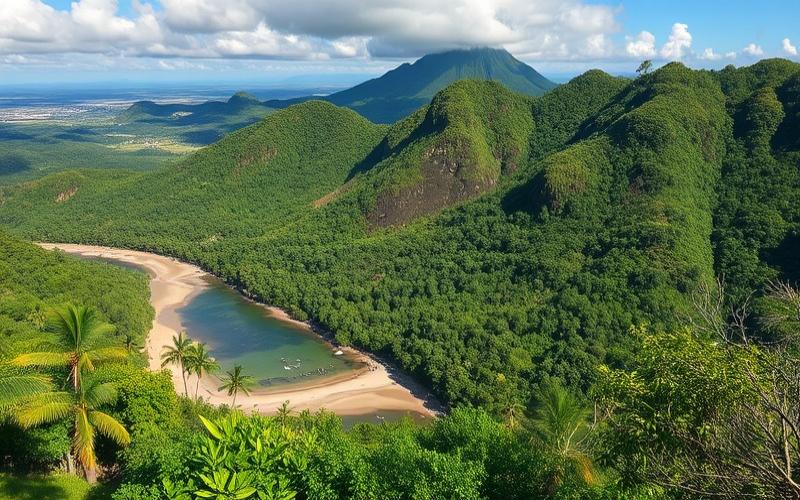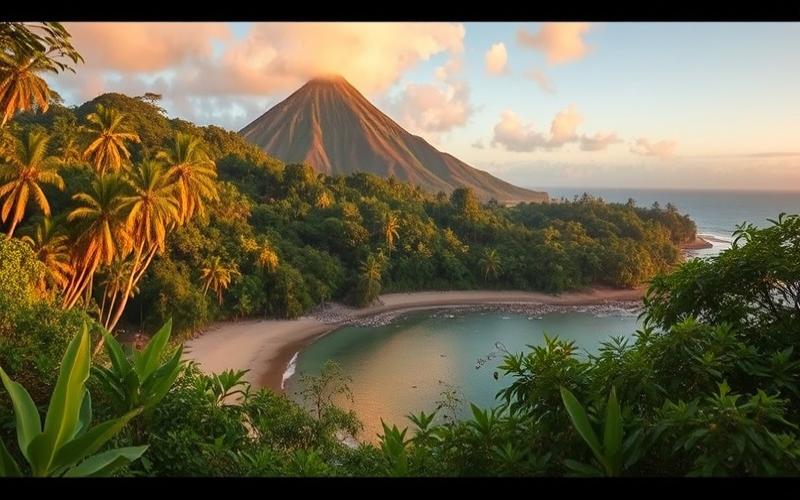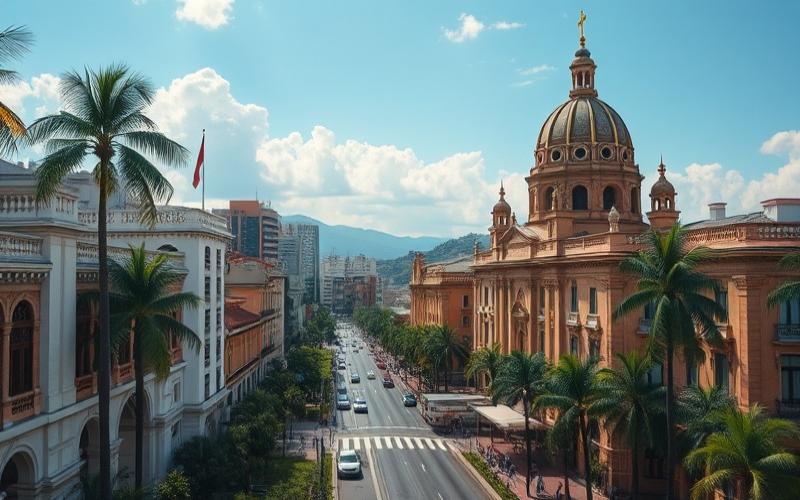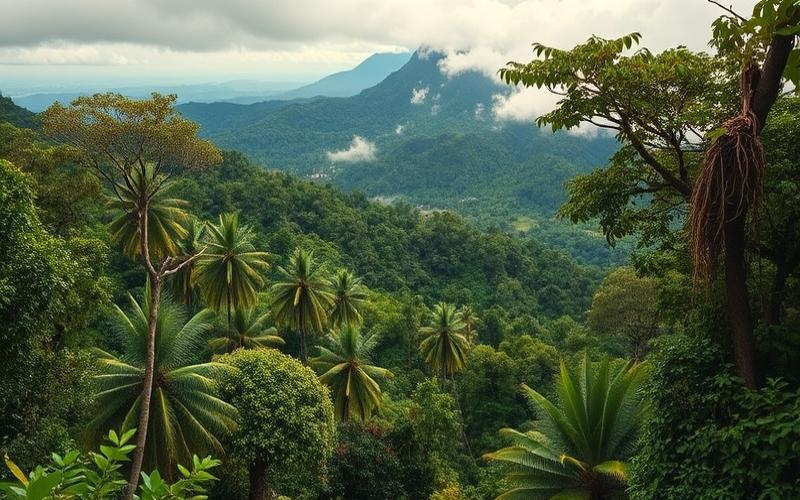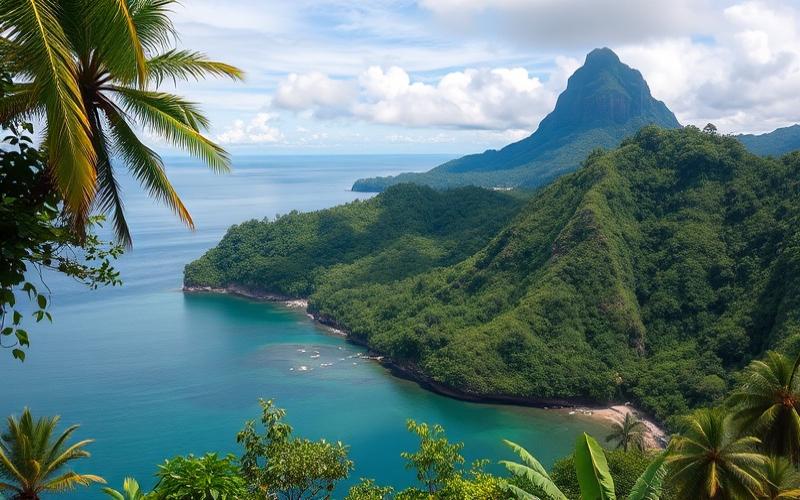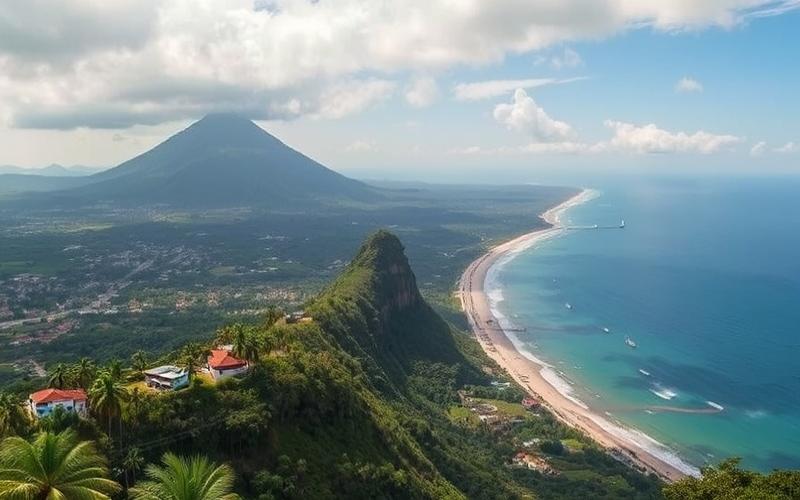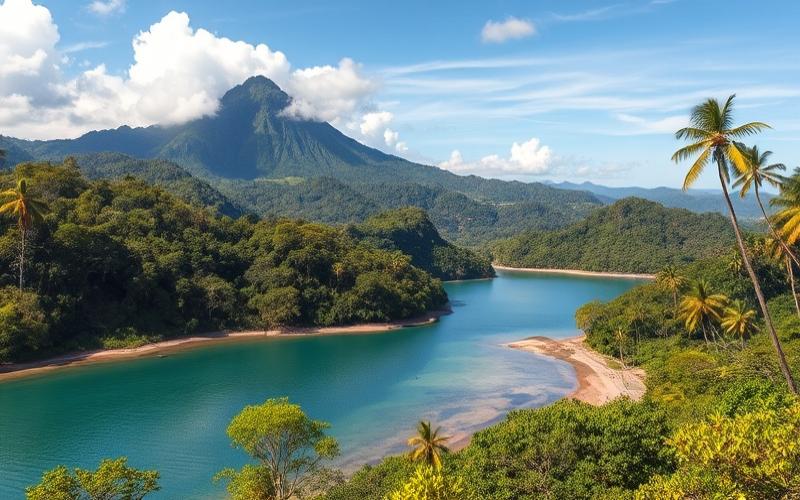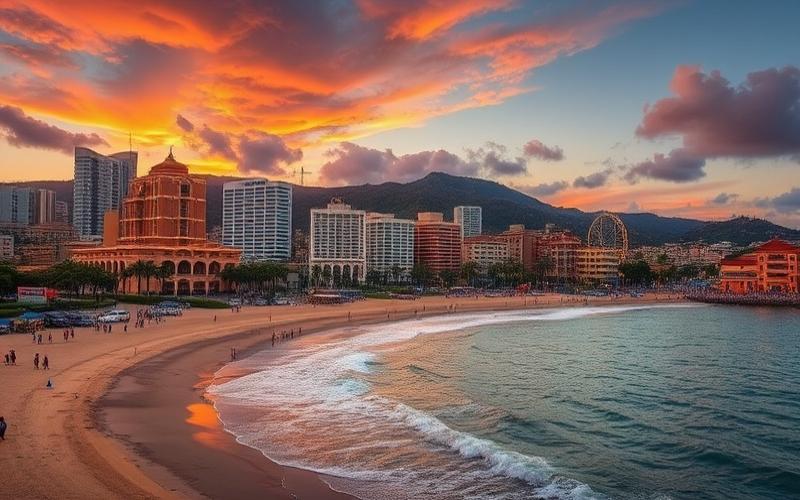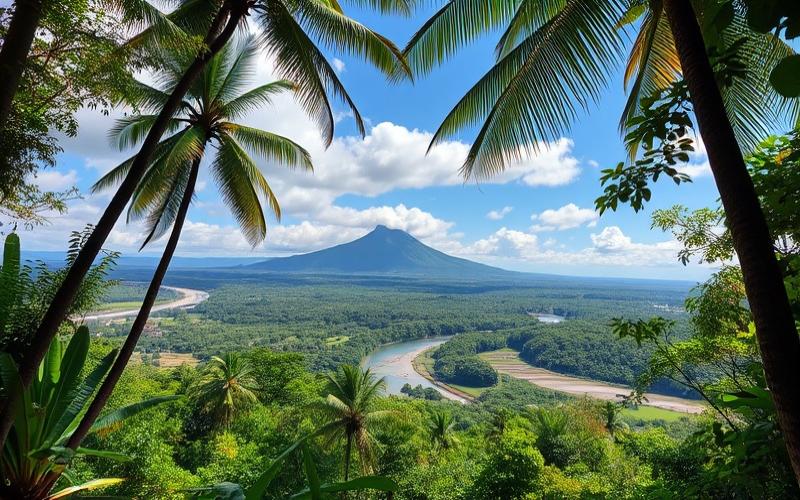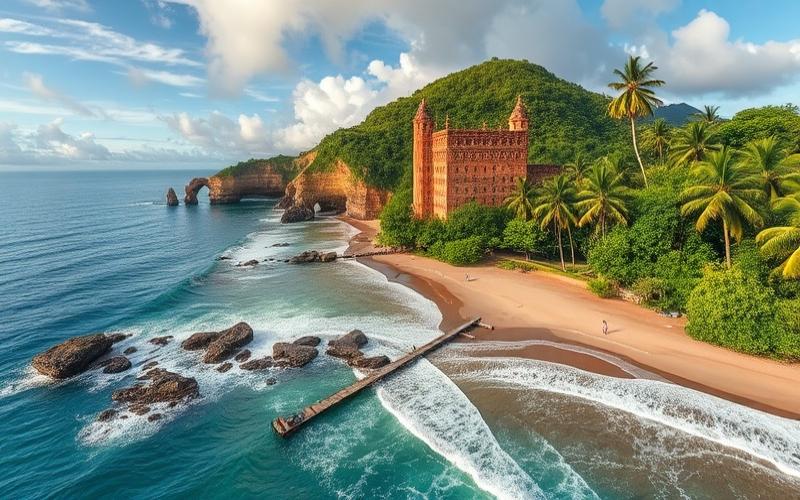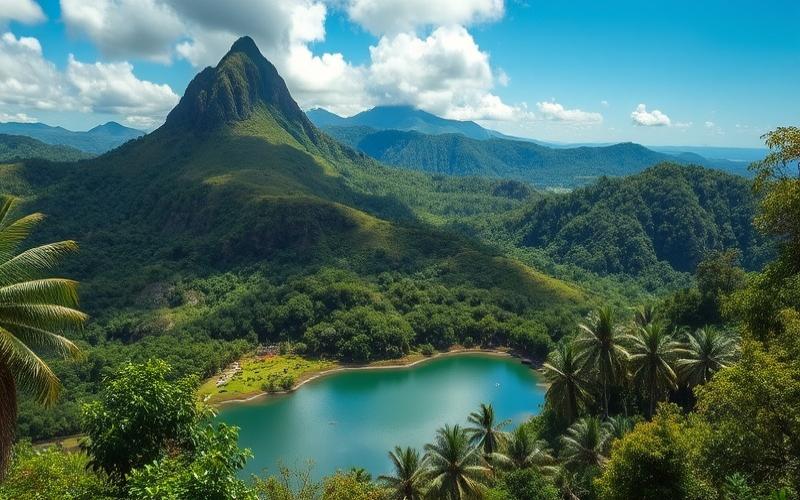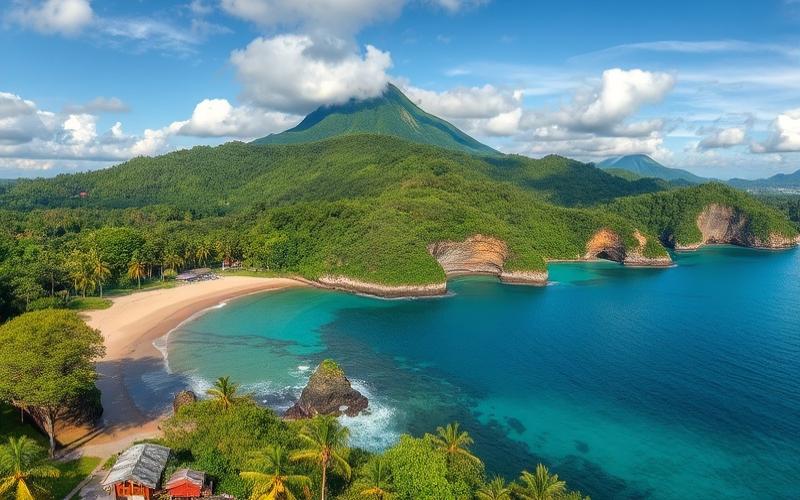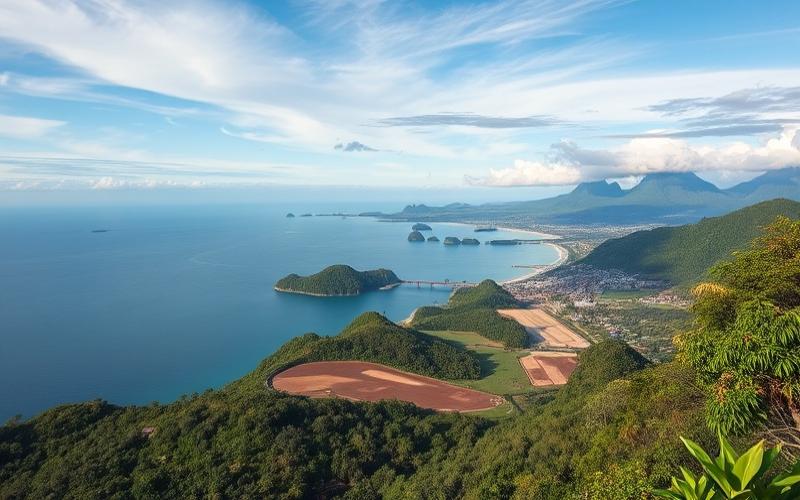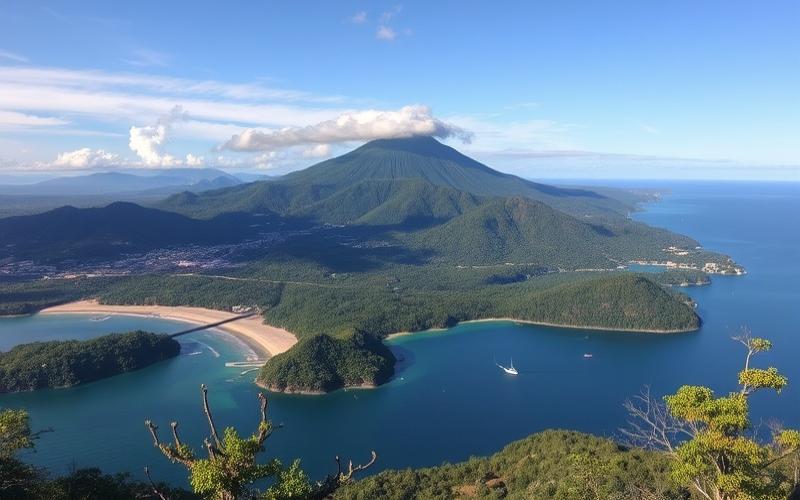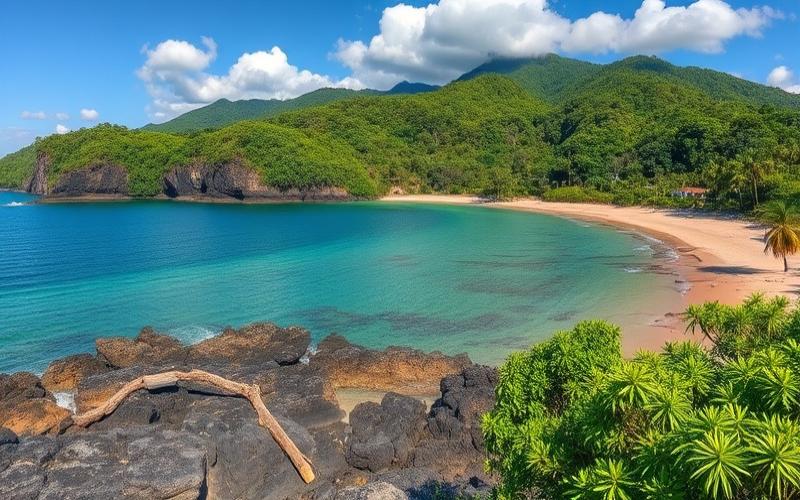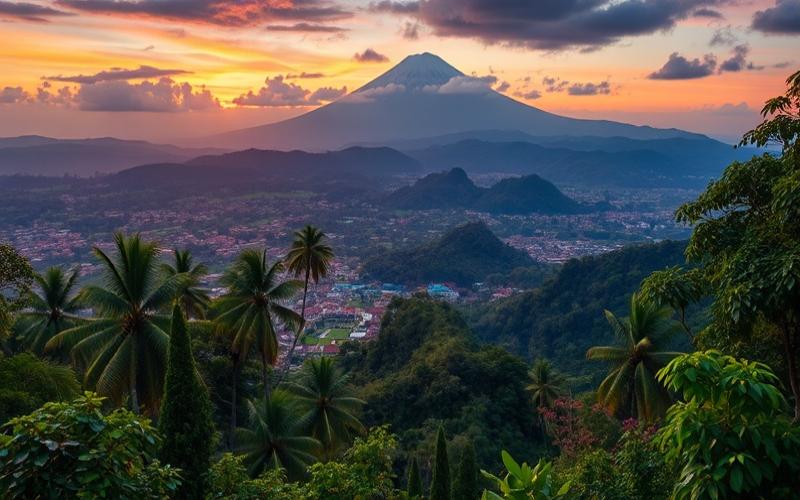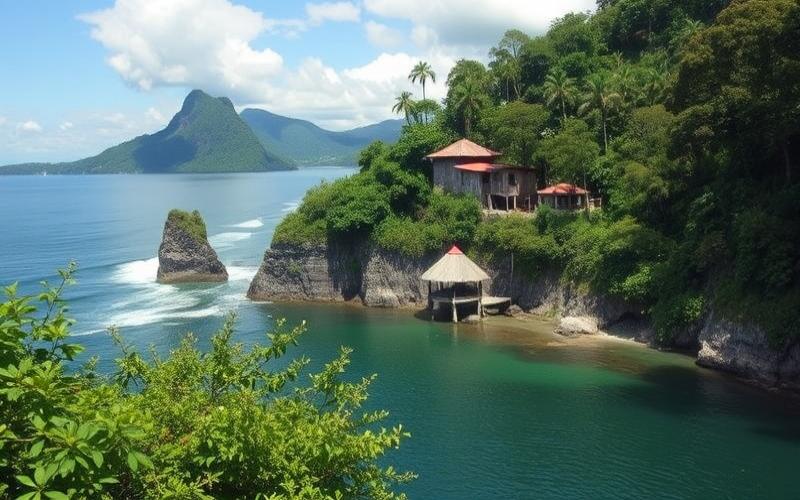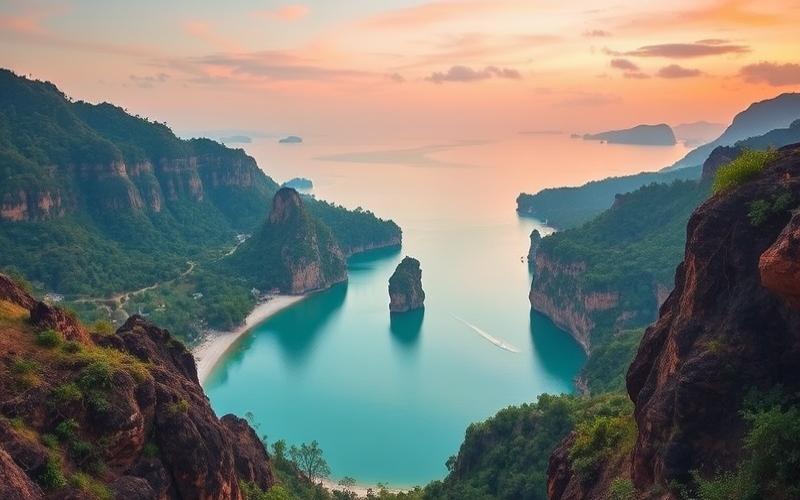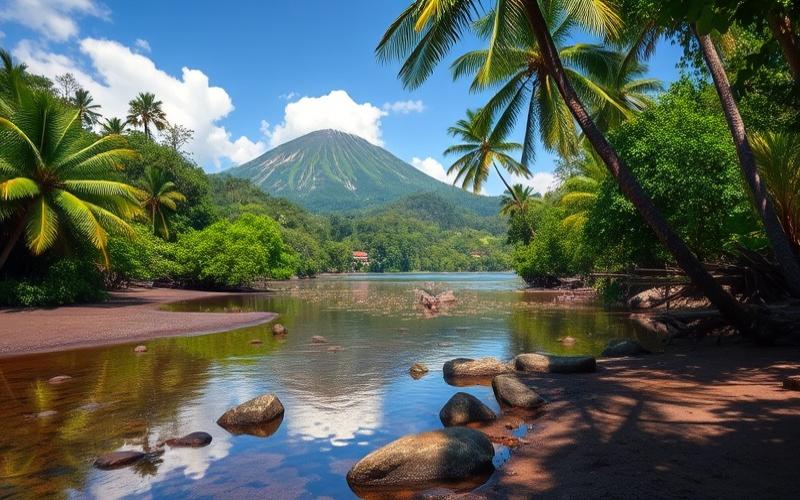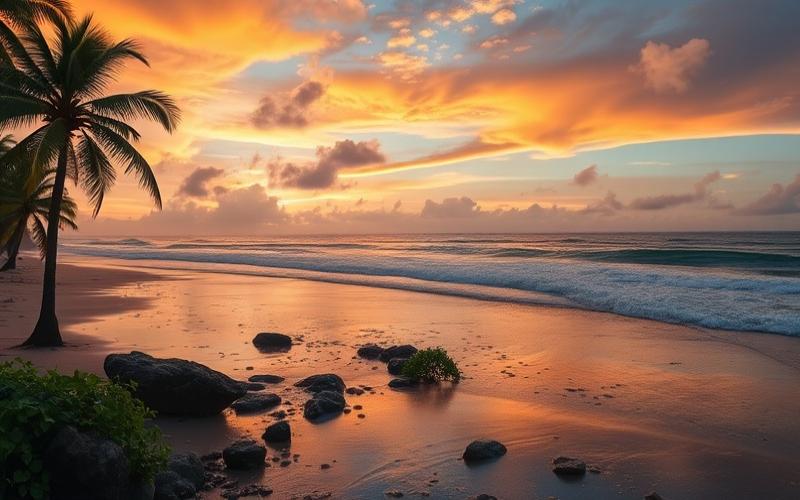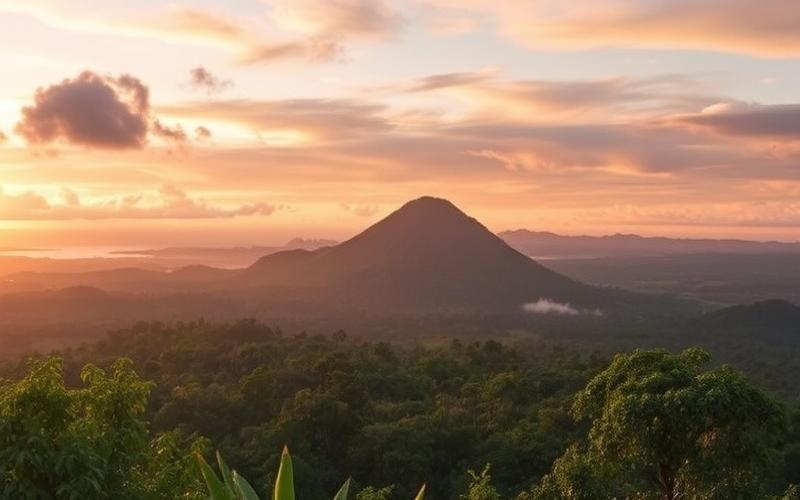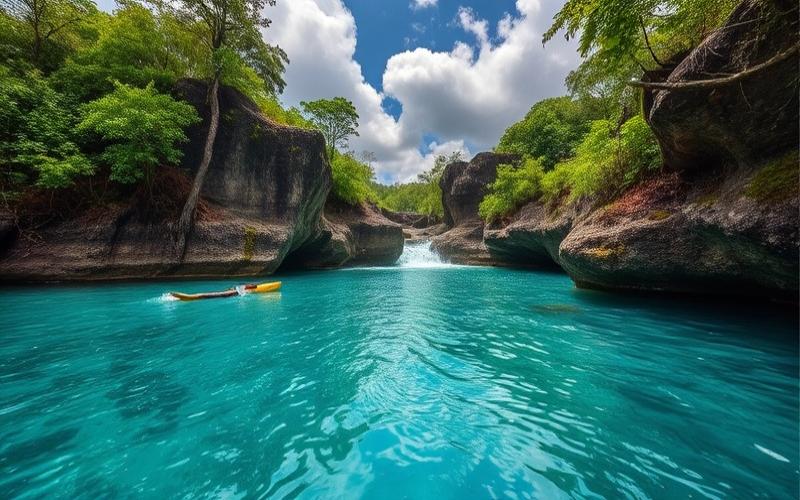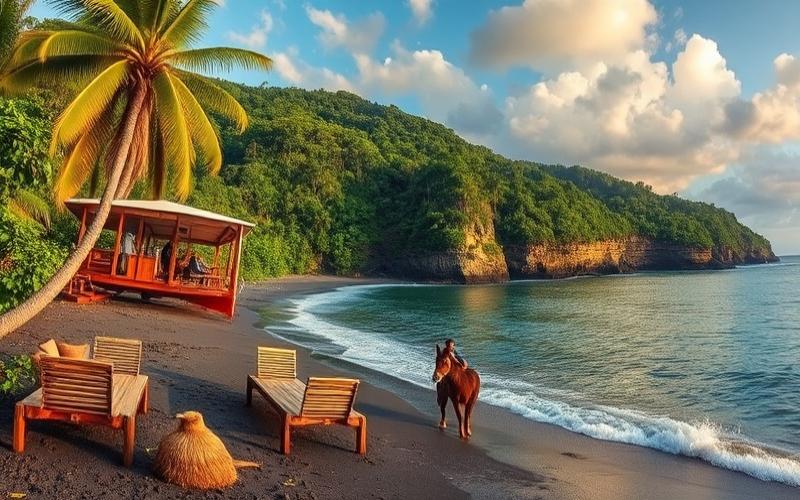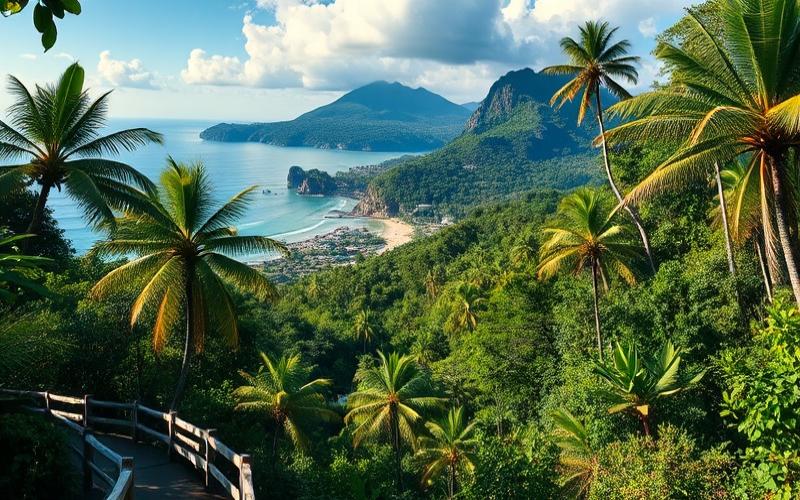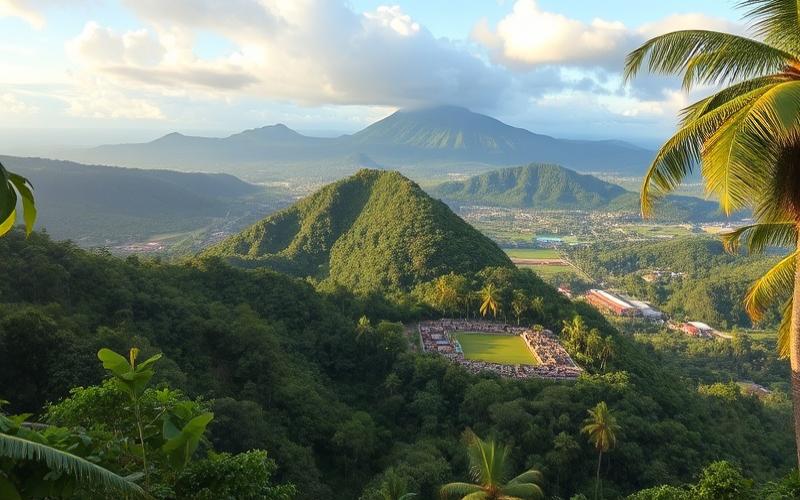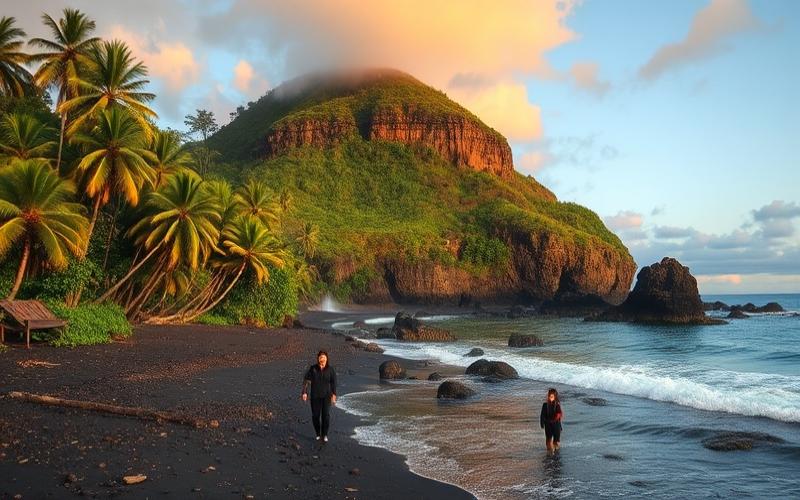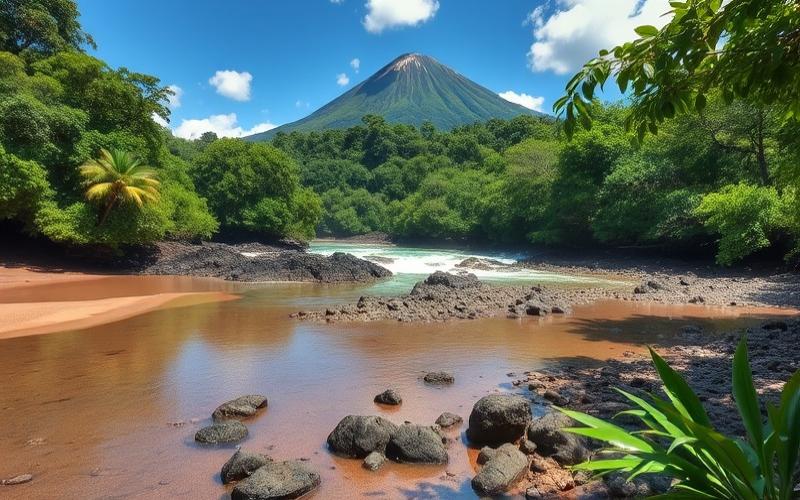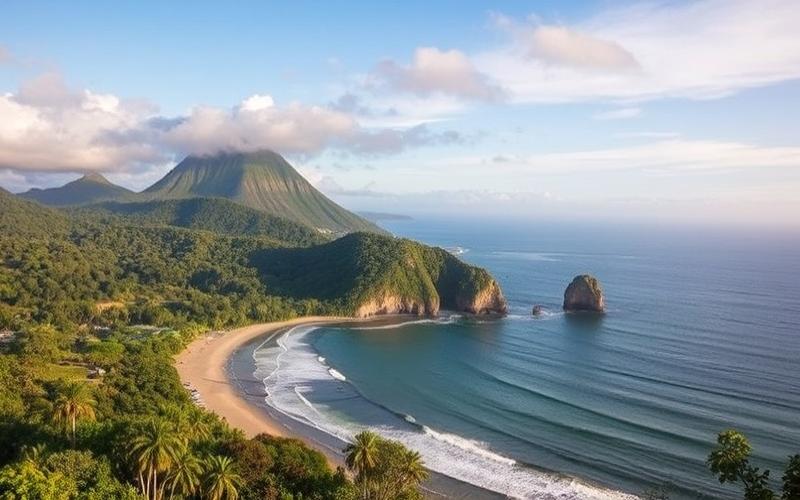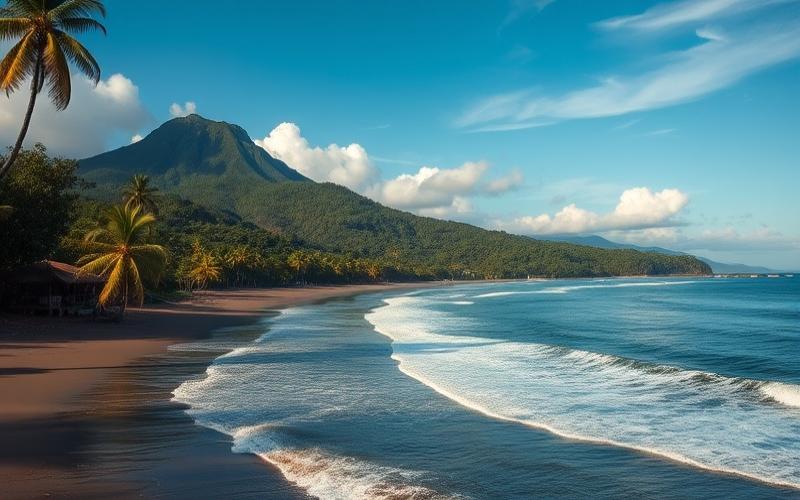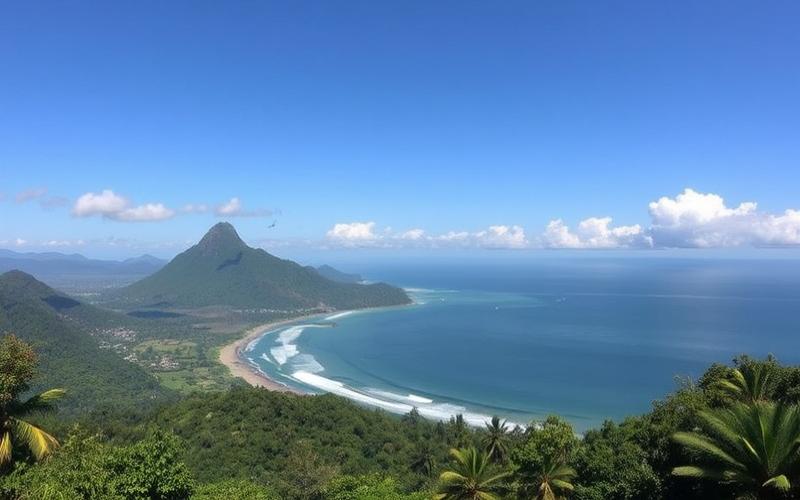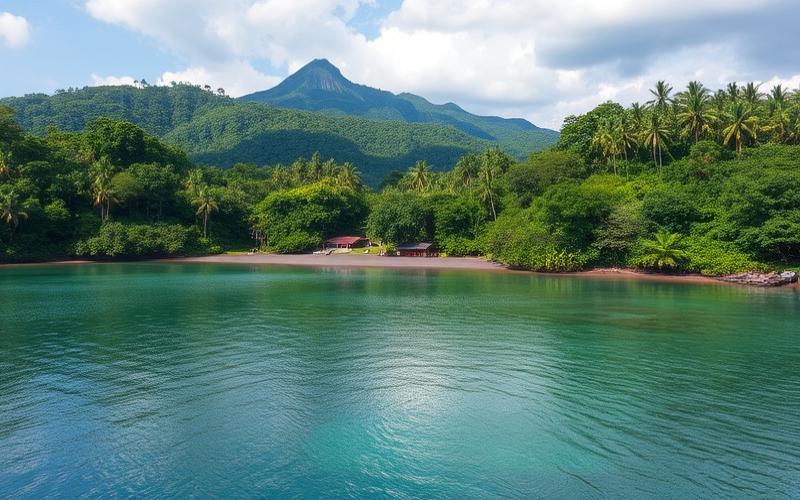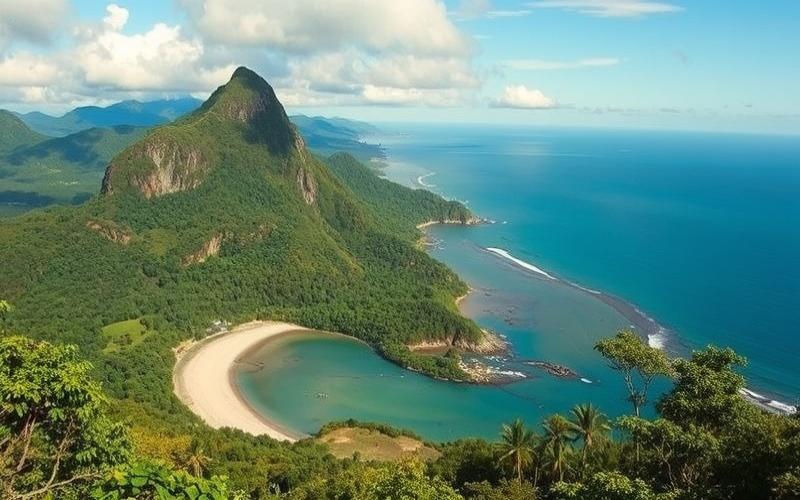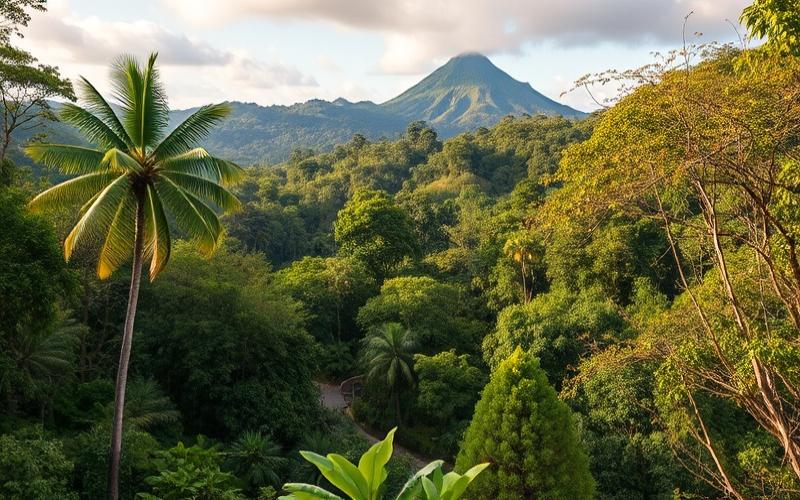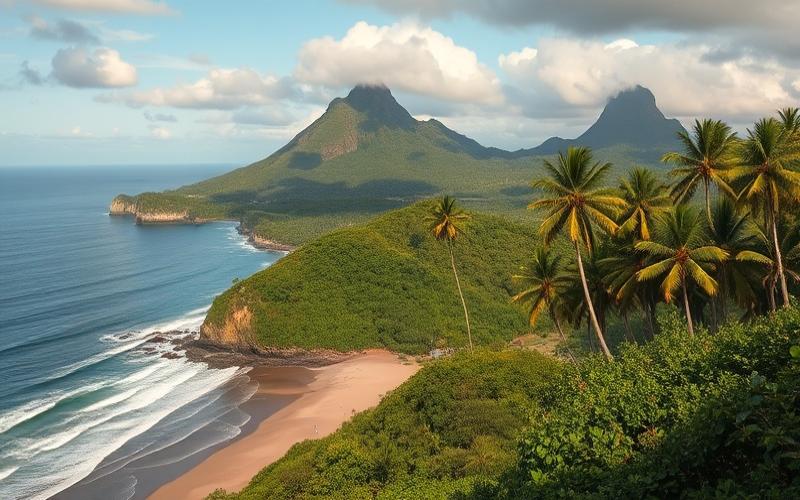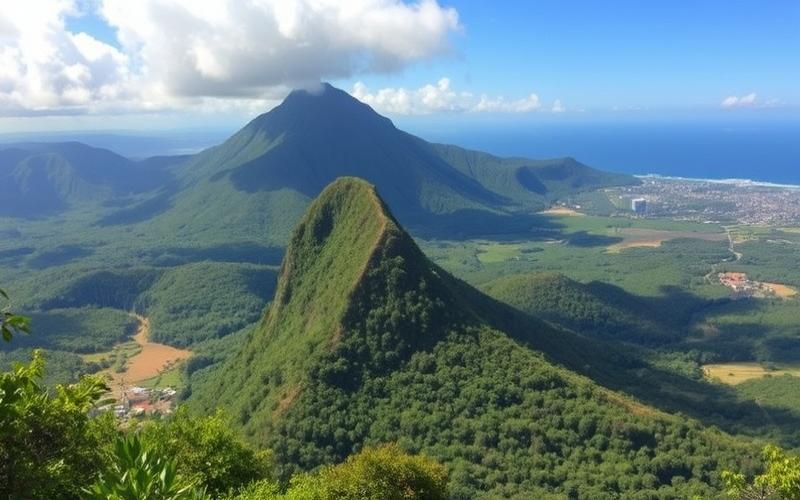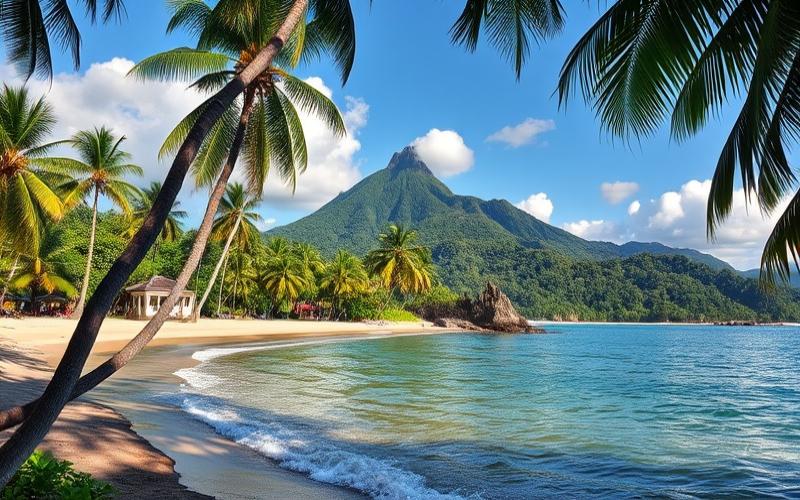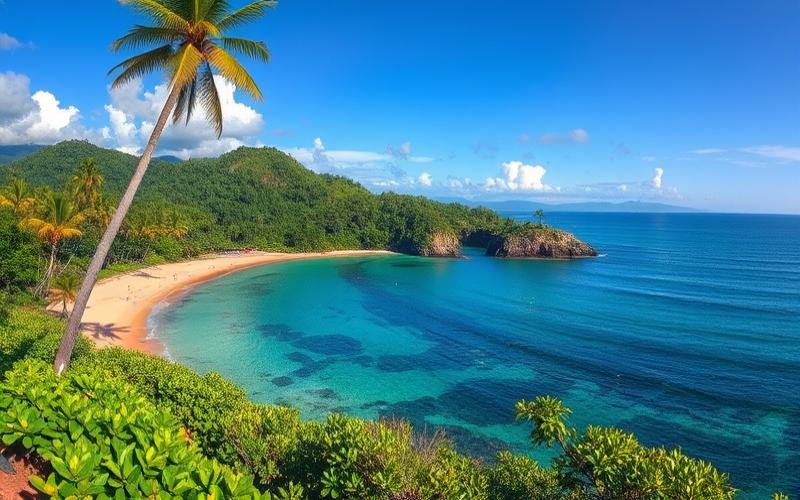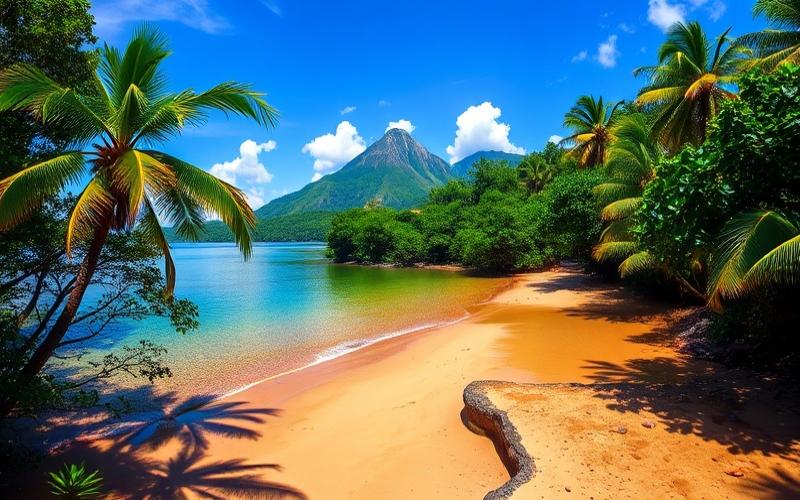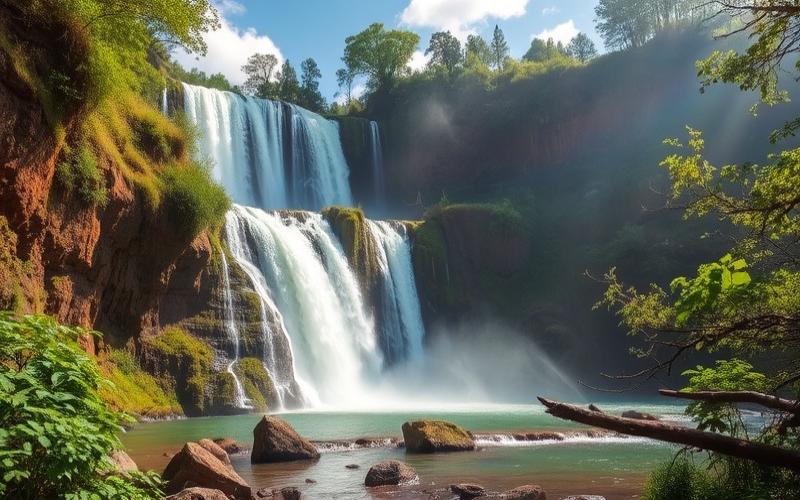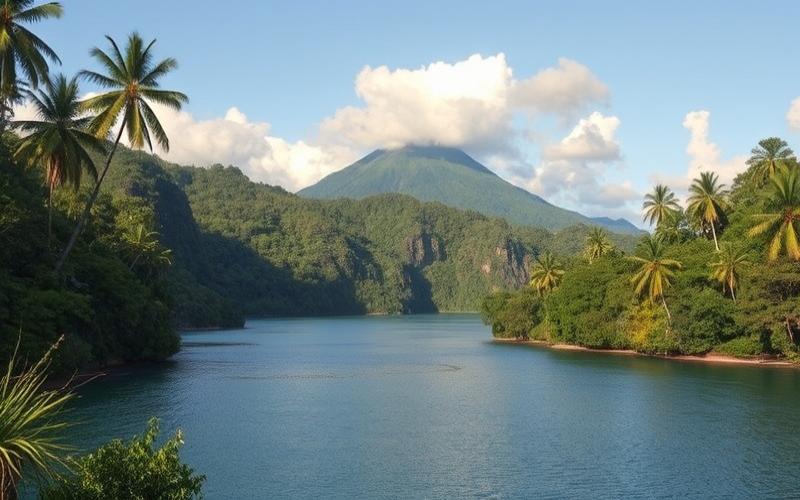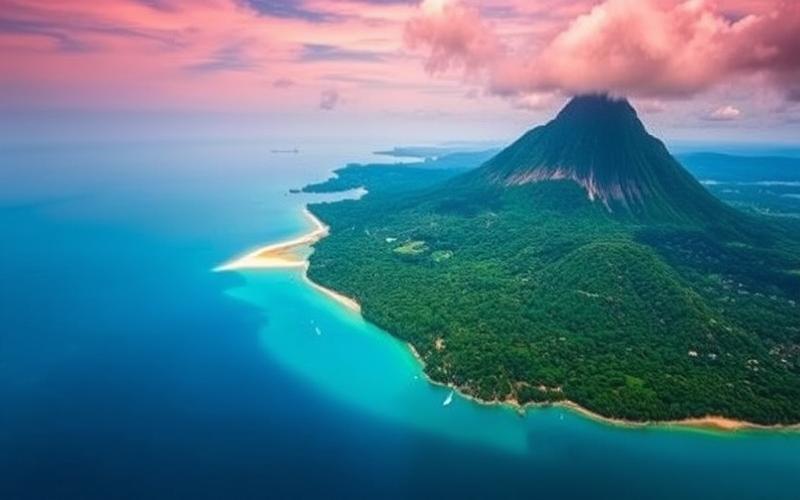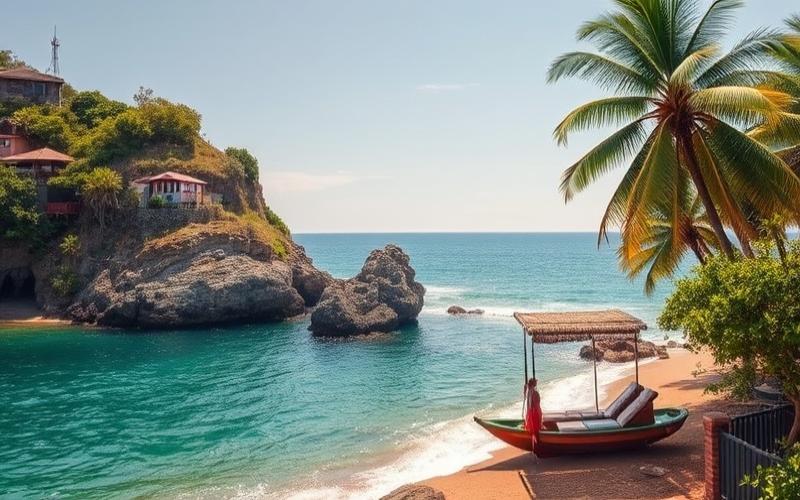
 Published on and written by Cyril Jarnias
Published on and written by Cyril Jarnias
Nestled between the Pacific and Atlantic Oceans, Costa Rica offers an exceptional natural setting ideal for sustainable and authentic investments.
Investing in Costa Rica’s Authentic Villages by 2025
By 2025, investing in authentic villages in this idyllic country presents a unique opportunity for investors seeking to balance profitability with responsible development.
These often-overlooked villages possess unmatched charm and untapped economic potential. Through initiatives supporting ecological and community tourism, investing capital in these projects can yield significant returns while preserving local culture.
Good to Know:
Numerous government programs and international institutions encourage these initiatives, ensuring a supportive infrastructure.
Discover Unique Opportunities
Explore the unique opportunities offered by these hidden gems, where tradition and progress coexist harmoniously, promising both significant impact on local communities and sustainable economic growth.
Investing in Costa Rica’s Authentic Villages: An Opportunity to Seize
Costa Rica’s authentic villages captivate with their unique character, cultural richness, and strong connection to the environment. For investors, these localities represent a rare opportunity to combine profitability with positive impact.
Characteristics of Costa Rica’s Authentic Villages
- Living Heritage:
- Presence of indigenous communities (e.g., Bribri) perpetuating traditions, language, and crafts.
- Traditional agricultural practices such as high-quality cocoa or coffee cultivation.
- Local Architecture:
- Use of natural materials (wood, bamboo, palm leaves).
- Construction respectful of surrounding ecosystems.
- Community Lifestyle:
- Strong mutual support among residents.
- Collective decision-making in certain eco-villages.
- Cultural Immersion for Visitors:
- Accommodations in guesthouses run by locals.
- Educational activities about nature and culture.
| Village/Region | Special Feature | Investment Advantage |
| Sarchí | Costa Rican Crafts & Heritage | Tourist Attraction |
| Los Santos Region | Renowned Coffee Production | Export & Agrotourism |
| Bribri Communities | Indigenous Authenticity | Cultural Ecotourism |
| Finca Bellavista | Rainforest Eco-Village | Sustainable & Innovative Model |
Economic and Social Factors Accelerating Return on Investment by 2025
- Steady growth in tourism focused on authenticity and sustainable development
- Rising international demand for immersive and responsible experiences
- Increasing value of organic agricultural products (cocoa, coffee)
- Development of local infrastructure facilitating access to previously isolated regions
Key Factors List:
- Relative proximity to major tourist centers while remaining preserved
- Cooperative networks promoting rapid integration into the local economy
- Skilled workforce from local communities
Government or Local Initiatives Encouraging Sustainable Investment
Concrete Examples:
- Tax incentives for investments in rural or ecological tourism
- Support for community projects via public grants or NGOs
- Educational programs on permaculture and environmental management within villages (example: Finca Bellavista)
Recent Examples of Successful Investments
Iconic Cases:
- Finca Bellavista — Successful transformation into a self-sufficient eco-village based on sustainable principles; creation of local jobs; strong international tourist appeal
- Santa Maria Cooperative (Los Santos Region) — Reasonable modernization enabling significant increase in coffee revenues while maintaining a collective structure
Major Ethical or Environmental Considerations
Any investment strategy must respect:
- Maintaining the local social fabric without causing excessive cost of living increases or distorting traditional lifestyles
- Active preservation of natural resources through responsible management (water, biodiversity)
- Engagement with populations so they benefit directly or predominantly from economic returns
Potential Risks & Mitigation Strategies
| Identified Risk | Recommended Strategies |
| Gentrification/real estate price increase | Systematically involve local communities; prioritize projects with shared governance |
| Loss of authenticity due to mass tourism | Limit hotel capacities; promote controlled ecotourism |
| Regulatory instability | Secure land titles; closely monitor legislative changes |
| Climate vulnerability | Invest in resilient infrastructure; integrate agroecological practices |
Cross-cutting Recommendations:
- Conduct a preliminary social/environmental impact study systematically
- Establish continuous dialogue with all local stakeholders
- Promote public/private partnerships including specialized NGOs
Investing in these villages therefore requires a subtle balance between financial return, deep socio-cultural respect, and sustained ecological commitment so that each project genuinely contributes to Costa Rica’s equitable and sustainable development.
Good to Know:
Investing in Costa Rica’s authentic villages represents a unique opportunity thanks to their natural charm and sustainable development potential. These villages, rich in local culture and endowed with beautiful landscapes, are increasingly attracting investors seeking alternatives to traditional tourist hubs. With infrastructure improvements supported by the government and local initiatives favoring ecological projects, the social economy of these regions promises a quick return on investment by 2025. For example, the sustainable development project in Santa Juana quadrupled tourist traffic while supporting the local community. However, it is crucial to respect local ecosystems and encourage ethical practices to minimize environmental impact. To mitigate financial risks, an effective strategy is to collaborate with local communities, ensuring their involvement and project integrity.
The Appeal of Rural Real Estate and Its Profitability Potential
Rural real estate in Costa Rica is increasingly attracting international investors due to several distinctive advantages:
- Authenticity of Costa Rican Villages: Rural villages offer an authentic cultural experience, preserving traditions, local architecture, and traditional lifestyles that appeal to visitors seeking immersive tourism.
- Growing Tourist Appeal: The growth of sustainable tourism and ecotourism is boosting interest in these regions. Travelers now prefer destinations offering preserved nature, biodiversity, and proximity to national parks or natural reserves.
Main Reasons Making These Investments Attractive:
- Low purchase costs compared to urban or coastal areas
- Low property taxes, allowing for higher net profitability
- Growing rental demand, especially through seasonal rentals like Airbnb/Vrbo due to the rise of remote work and digital nomadism
- Trends toward ecological housing, with high demand for passive houses, local materials, and eco-friendly infrastructure
Summary Table of Competitive Advantages:
| Advantage | Description |
|---|---|
| Authenticity | Typical village life, cultural immersion |
| Acquisition Cost | Prices 15–40% lower than urban centers or popular beaches |
| Property Tax | Generally less than 0.25%/year of cadastral value |
| Rental Yield | 6–10% net/year in rural tourist areas |
| Sustainable Tourism | Annual increase in ecotourist visitor numbers |
Current Trends (2025) & Perspectives:
- The rural real estate market is experiencing steady growth (+8%/year in some segments).
- Buyers primarily seek eco-designed properties (solar panels, water recovery).
- Improvement in road and airport infrastructure is opening more rural localities to an international audience.
List of Key Factors Influencing the Market Until 2025:
- Continuous growth of green tourism
- Increased development in the high-end environmentally respectful segment
- Growing popularity among foreign retirees benefiting from attractive tax incentives
- Digitalization facilitating remote rental management
Concrete Examples of Dynamic Rural Villages in Costa Rica:
| Village | Region | Specifics & Real Estate Dynamics |
|---|---|---|
| Nosara | Guanacaste | Recognized ecotourism hub; strong development of sustainable villas |
| Samara | Guanacaste | Family-friendly atmosphere; steady increase in real estate prices & short-term rentals |
| Santa Teresa | Puntarenas | Mix of surf/yoga/remote work; strong international demand |
| Monteverde | Puntarenas | National ecotourism capital; growing appeal for second homes |
Probable Evolution: These localities should continue their ascent thanks to their growing international reputation among travelers sensitive to environmental values. In the short/medium term (by 2025), a continuation or even a moderate but steady acceleration is anticipated in both volume and real estate valuation.
Costa Rican rural real estate thus combines village authenticity, low tax pressure, and growing tourist potential – solid arguments for a sustainable investment.
Good to Know:
Rural real estate in Costa Rica attracts investors thanks to the authenticity of villages like Santa Teresa and Monteverde, known for their picturesque charm and rapid growth in ecotourism. With affordable purchase costs and low property taxes, these regions offer attractive return on investment potential. Moreover, current trends show an increase in sustainable tourism, enhancing the appeal of these areas. By 2025, interest in these villages is expected to grow, supported by the rise of green tourism and local infrastructure, increasing property values and making investments in these communities not only profitable but strategic.
Preserving the Authenticity and Heritage of Costa Rica’s Rural Regions
Costa Rica’s rural villages stand out with unique cultural values that attract investments mindful of authenticity and sustainable development. Among these values are:
- Community solidarity and intergenerational transmission of knowledge.
- Traditional crafts, notably the colorful oxcarts of Sarchí, inscribed in UNESCO’s intangible cultural heritage.
- Sustainable agricultural practices (coffee, cocoa, banana) that structure local life.
- Deep respect for nature and a “Pura Vida” life philosophy centered on collective well-being.
| Cultural Value | Concrete Examples |
|---|---|
| Crafts | Painted oxcarts in Sarchí |
| Sustainable Agriculture | Coffee plantation in Monteverde |
| Oral Traditions | Stories shared by elders |
| Festivals and Rituals | Traditional rural dances |
The reconciliation between local traditions and economic development is possible through responsible rural tourism and short agricultural supply chains:
- Valuing local products (origin-controlled coffees, crafts) creates jobs while maintaining ancestral practices.
- Visitors actively participate in daily activities: cocoa harvesting or preparing typical dishes with residents.
- Revenues from rural tourism are reinvested in maintaining cultural heritage (restoration of historic buildings or organization of cultural events).
Concrete initiatives have emerged to protect this dual heritage:
- In Sarchí: open workshops where artisans pass on their traditional painting skills on oxcarts; conservation recognized by UNESCO.
- In Sarapiquí: agricultural cooperatives offering tourists immersion in local organic production; awareness of sustainable use of natural resources.
- Among the Borucas: active maintenance of ancestral techniques like mask carving during the annual festival.
The central role played by community engagement is expressed as follows:
- Creation of village associations directly managing local museums or adjacent natural reserves;
- Collective organization of seasonal events valuing culinary or musical traditions;
- Awareness-raising among younger generations to perpetuate these legacies.
This engagement fosters real local ownership in the face of challenges related to investments that are less concerned with preservation. It also enables better economic resilience during difficult times through controlled diversification.
Notable examples elsewhere in Costa Rica:
- Success
Mollejones (Turrialba): active involvement in rural tourism with emphasis on ancient oral narratives during cultural evenings; equitable economic benefits for the entire involved rural community; - Challenges
Some villages that too quickly sold their land see traditional know-how disappear due to inadequate support: gradual loss of cultural identity despite temporary financial boom.
Preserving authenticity and heritage is not incompatible with local development: it is precisely their synergy—based on community engagement and active respect—that ensures a harmonious future for Costa Rica’s rural regions.
Good to Know:
Costa Rica’s rural villages possess unique cultural values, such as traditional agricultural practices and local festivals, that attract investors seeking authentic experiences. Reconciling local traditions with economic development, initiatives like the “Turismo Rural Comunitario” program have emerged, offering communities the opportunity to benefit from tourism while preserving their heritage. Resident engagement is crucial, as shown by the success of Santa Elena, where local businesses collaborate to preserve Monteverde Park’s biodiversity. However, challenges remain, as in the village of Orosi, facing modernization pressures that threaten its artisanal traditions.
Disclaimer: The information provided on this website is for informational purposes only and does not constitute financial, legal, or professional advice. We encourage you to consult qualified experts before making any investment, real estate, or expatriation decisions. Although we strive to maintain up-to-date and accurate information, we do not guarantee the completeness, accuracy, or timeliness of the proposed content. As investment and expatriation involve risks, we disclaim any liability for potential losses or damages arising from the use of this site. Your use of this site confirms your acceptance of these terms and your understanding of the associated risks.

